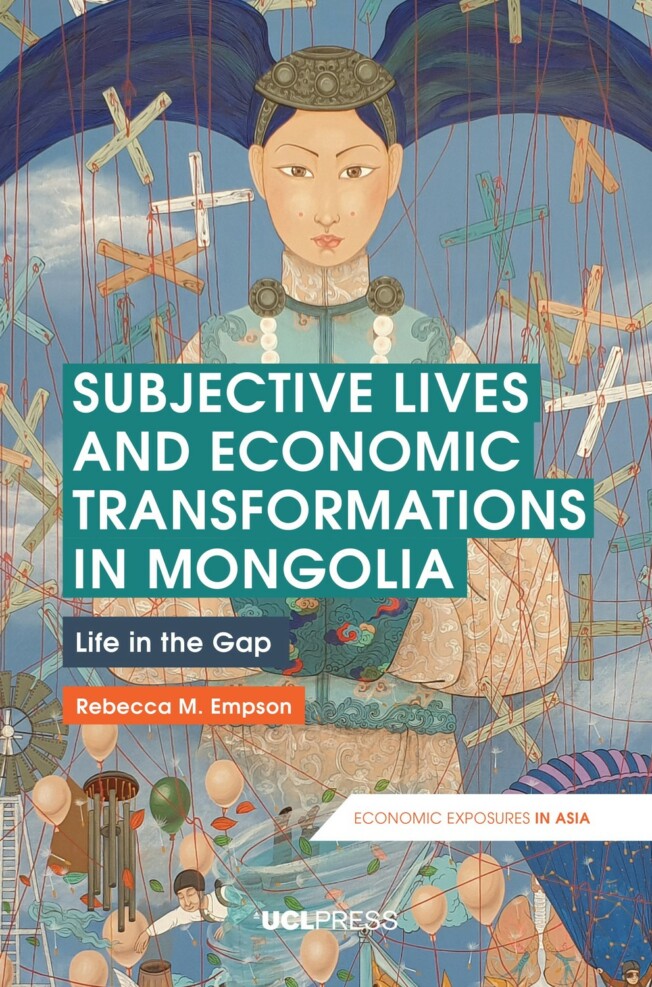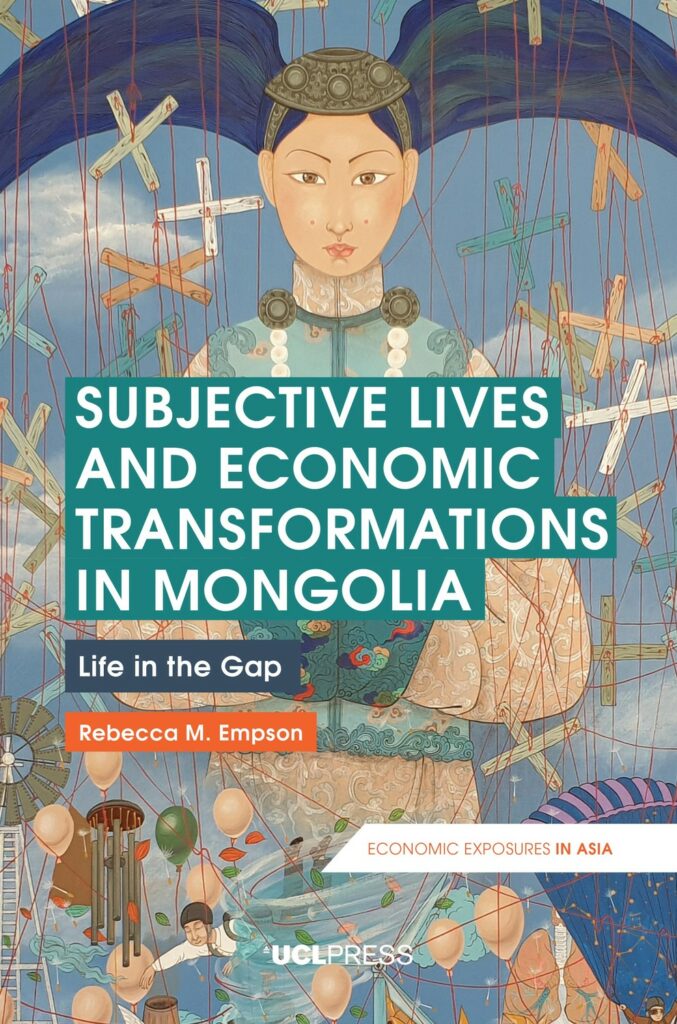
Subjective Lives and Economic Transformations in Mongolia
Life in the Gap
Rebecca M. Empson (Author)
Series: Economic Exposures in Asia
Almost 10 years ago the mineral-rich country of Mongolia experienced very rapid economic growth, fuelled by China’s need for coal and copper. New subjects, buildings, and businesses flourished, and future dreams were imagined and hoped for. This period of growth is, however, now over. Mongolia is instead facing high levels of public and private debt, conflicts over land and sovereignty, and a changed political climate that threatens its fragile democratic institutions.
Subjective Lives and Economic Transformations in Mongolia details this complex story through the intimate lives of five women. Building on long-term friendships, which span over 20 years, Rebecca documents their personal journeys in an ever-shifting landscape. She reveals how these women use experiences of living a ‘life in the gap’ to survive the hard reality between desired outcomes and their actual daily lives. In doing so, she offers a completely different picture from that presented by economists and statisticians of what it is like to live in this fluctuating extractive economy.
Praise for Subjective Lives and Economic Transformations in Mongolia
‘a comprehensive and dispassionate account following the lives of five women’
Inner Asia
‘The strength of the book lies in showing how these women are simultaneously troubled and inspired by the economic transformation without either celebrating their resilience or victimizing them’
Journal of the Royal Anthropological Society (JRAI)
Introduction
1. When the party was cancelled
Interlude I
2. Democracy and its discontent
Interlude II
3. Loans for care
Interlude III
4. Freedom and movement Interlude IV 5. Networks of exchange
Interlude V
Conclusion
Bibliography
Index
DOI: 10.14324/111.9781787351462
Number of pages: 178
Number of illustrations: 5
Publication date: 01 June 2020
PDF ISBN: 9781787351462
EPUB ISBN: 9781787351493
Hardback ISBN: 9781787351486
Paperback ISBN: 9781787351479
Rebecca M. Empson (Author)
Rebecca M. Empson is Professor of Anthropology at UCL. Alongside teaching in the Department of Anthropology, her research has focused on personhood, ownership, memory and material culture (Harnessing Fortune, 2011), and forms of temporary possession in the global economy (Cultural Anthropology, 2019).
‘a comprehensive and dispassionate account following the lives of five women’
Inner Asia
‘The strength of the book lies in showing how these women are simultaneously troubled and inspired by the economic transformation without either celebrating their resilience or victimizing them’
Journal of the Royal Anthropological Instiiute (JRAI)
Related titles
Environment and Post-Soviet Transformation in Kazakhstan’s Aral Sea Region
William Wheeler,
25 October 2021
Subjective Lives and Economic Transformations in Mongolia
Life in the Gap
Almost 10 years ago the mineral-rich country of Mongolia experienced very rapid economic growth, fuelled by China’s need for coal and copper. New subjects, buildings, and businesses flourished, and future dreams were imagined and hoped for. This period of growth is, however, now over. Mongolia is instead facing high levels of public and private debt, conflicts over land and sovereignty, and a changed political climate that threatens its fragile democratic institutions.
Subjective Lives and Economic Transformations in Mongolia details this complex story through the intimate lives of five women. Building on long-term friendships, which span over 20 years, Rebecca documents their personal journeys in an ever-shifting landscape. She reveals how these women use experiences of living a ‘life in the gap’ to survive the hard reality between desired outcomes and their actual daily lives. In doing so, she offers a completely different picture from that presented by economists and statisticians of what it is like to live in this fluctuating extractive economy.
Praise for Subjective Lives and Economic Transformations in Mongolia
‘a comprehensive and dispassionate account following the lives of five women’
Inner Asia
‘The strength of the book lies in showing how these women are simultaneously troubled and inspired by the economic transformation without either celebrating their resilience or victimizing them’
Journal of the Royal Anthropological Society (JRAI)
‘a comprehensive and dispassionate account following the lives of five women’
Inner Asia
‘The strength of the book lies in showing how these women are simultaneously troubled and inspired by the economic transformation without either celebrating their resilience or victimizing them’
Journal of the Royal Anthropological Instiiute (JRAI)

